In this post, we'll dive into the concept of SMART goals, talk about what each letter means, and learn how to set SMART nutrition goals that work for you.
Have you ever set a goal, like improving a skill or sticking to a healthier routine, and then found yourself slipping back into old habits? Coming from a dietitian who coaches clients, we've seen this happen countless times. In fact, it's super common especially with the daily grind and curveballs of life.
That's why the SMART goal-setting method can be a game-changer. It acts like a guide, helping you frame your goals more clearly and realistically. This method can be a key in making your ambitions happen, despite the challenges. Let's explore how it works.
(This post is written by Cheerful Choices contributor, Ravin Garrett.)

Table of Contents
Why SMART nutrition goal setting matters
Goal setting can help put those seemingly out-of-reach ideas into an actionable plan. The key is creating personalized goals. This allows you to create a clear vision you can stick to long-term.
Reaching BIG goals doesn't happen overnight.That's why it's important to split it up into "mini" SMART goals. Talking through mini goals is something registered dietitian, Mackenzie, works on with clients all the time in the "Coaching + Cooking" program.
With smaller goals, you can slowly chip away at it and celebrate these milestones on your journey. Using SMART goals also gives you confidence and accountability needed to reach the goal.

What does S.M.A.R.T. Mean?
SMART goals create more of a guided and clear-cut approach to those resolutions or habits. "SMART" is an acronym, with each letter having its own purpose to help you stay on track.
Here's what it stands for: S is for Specific, M is for Measurable, A is for Achievable, R is for Relevant, and T is for Time-bound. Let's dive into each letter and how they can apply to our goals.
Want to see them all spelled out on one page? Download our SMART Goals PDF here.
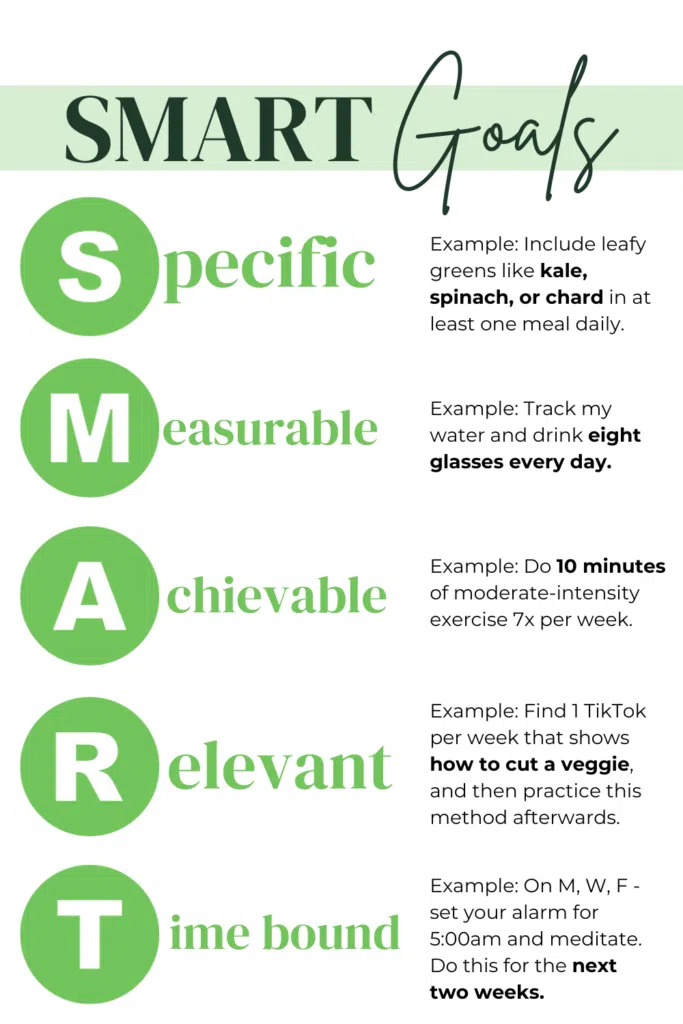
S: Specific
Specific means having crystal clear objectives and being as precise as possible on the goals that you want to achieve. Goals are not achieved overnight, so visualizing even the nitty-gritty details can help make that goal a reality.

Example
For example, a goal like "Get more vegetables" or "Buy salads to eat all week" may sound like a solid statement, but it's still too broad. Instead, you might say something more specific like, "Purchase three different types of salad kits at Trader Joe's by Sunday evening, and prepare a salad for lunch on Monday, Wednesday, and Friday."
Here's another example of a specific goal: "Include leafy greens like kale, spinach, or chard in at least one meal daily."
Adding these three leafy greens is a great way to add vegetables to your diet for overall health and well-being. Load up on your veggies with a fruit smoothie with kale for breakfast to fill the body with vitamins and antioxidants to go into the day feeling your best.
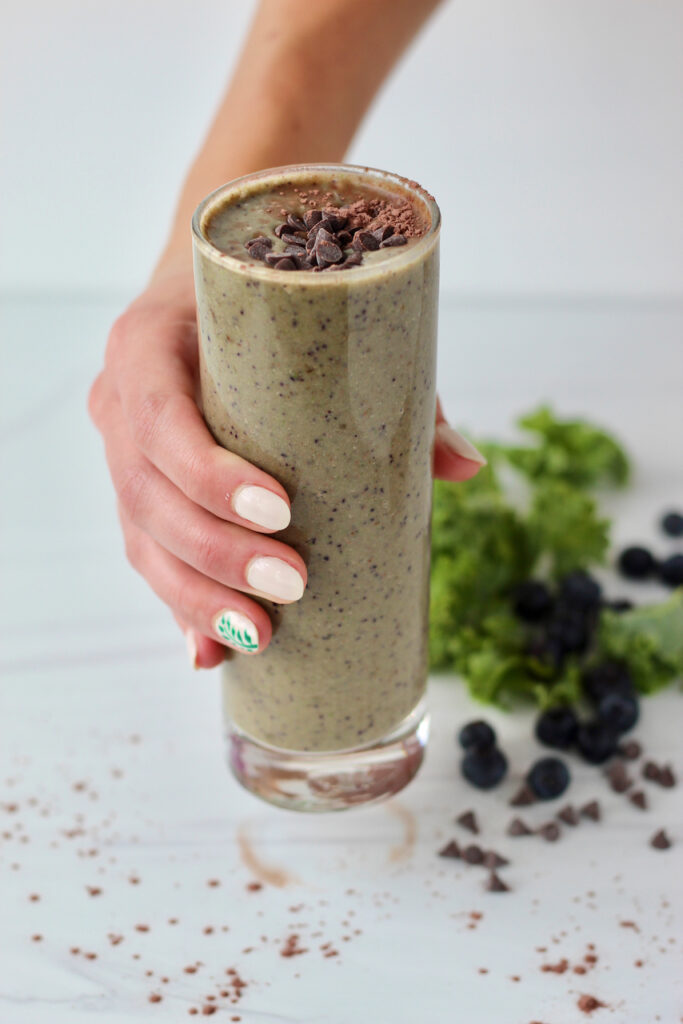
M: Measurable
Measurable means having a way to track progress and measure the accuracy of your goals. Drinking more water is a goal that can use metrics to measure its progress along the way. There have been several new innovative ways to track water intake too. You might try tracking your water intake in an app or purchasing a motivational water bottle that gives you encouraging words and tracks your water intake throughout the day.
Example
Expanding "drink more water" into "Track my water and drink eight glasses every day" gives a way to measure the goal's progress.
You could track this goal by using water tracking apps or creating a water tracking sheet to put on your fridge and use stickers to mark your water.
A: Achievable
Achievable means keeping it real when setting goals. Be real honest with yourself: Can this goal happen in your time frame or based on your current finances? It can be easy to bite off more than you can chew, so ensure your goals align with your reality.
Instead of aiming for a goal that seems super far-fetched, think about creating multiple mini goals that allow you to see the goal as a journey. This can make it feel more attainable. Utilizing what you currently have allows you to achieve a goal anytime, even with limited resources.
Example
"Get in at least 30 minutes of moderate-intensity exercise 7x per week" may seem achievable to some, but to others, it may be a steep hill to climb. You could always break down this goal step-by-step, such as incorporating 10-15 minutes of low-moderate intensity for at least 2x weeks, then gradually increasing over the next few weeks. Instead of aiming for the goal immediately, this approach can make it feel less overwhelming and attainable in the future.

R: Relevant
Relevant means setting goals that matter the most to your overall health and well-being. In other words, don't continually change goals to meet the latest health fad you hear about - stay focused on what YOU value.
Also, make sure it's a goal that you'll want to stick with for a while. Progress takes time. If you are highly interested in the components of your goal, being able to stay on track will be a breeze.
Example
Let's say you're very interested in learning more knife skills when it comes to chopping vegetables. And perhaps you learn best through short-form video or hands-on help rather than reading articles or just looking at photos. A relevant goal could be to "find one Instagram Reel or TikTok per week that shows off how to cut various fruits and vegetables, and then practice this method afterwards."
Side note: Our Instagram @cheerfulchoices is choke-full of helpful kitchen hacks and cutting tutorials to watch. Plus, our "Coaching + Cooking" program is designed to give you hands-on help in the kitchen if that's one of your goals.
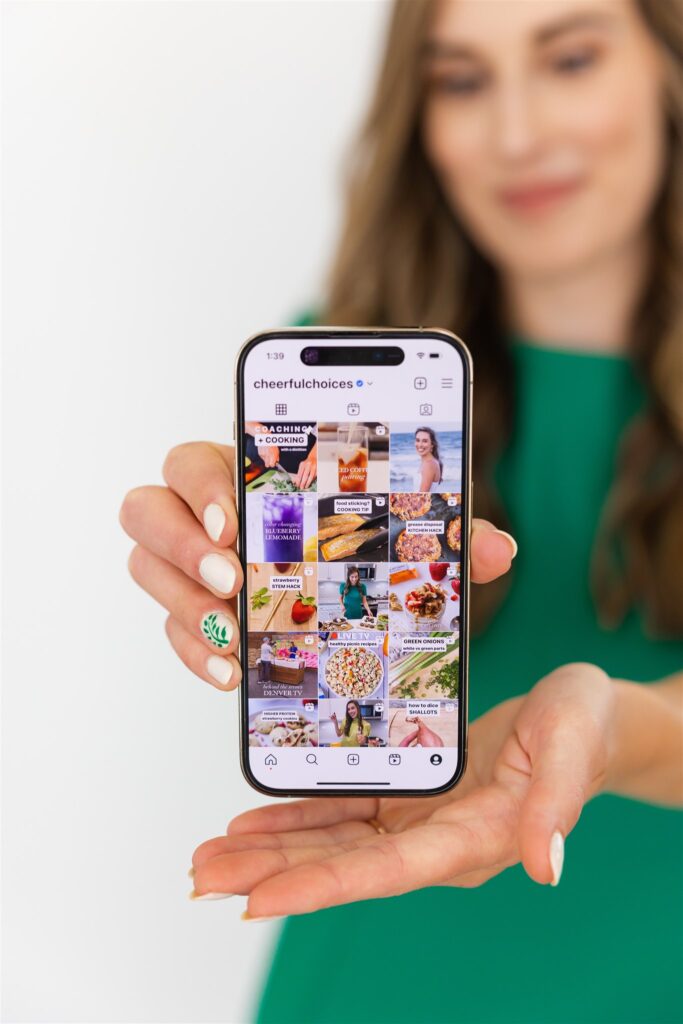
T: Time-bound
Time-bound means putting a deadline or even a light sense of urgency to your goal. Incorporating this time element allows you to track progress with metrics.
A time-bound goal could also help with procrastination since the goal will have a specific time carved out to complete it each day with reminders to aid in success.
Example
Example: "On Monday, Wednesday, and Friday, set your alarm for 5:00 a.m. and meditate before you start your busy day. Do this for the next two weeks." This goal allows you to work around potential time restrictions and can kick start a calm day.

How to have long-term success with goals
Now, let's make these goals last! These SMART goals allow you to tailor each letter into a way that can set you up for long-term success. Here are some other tips to keep the motivation going.
Set mini goals
If you have one BIG goal, it can be helpful to break it up in 5, 10, or maybe even 20 mini goals over the course of a month to a year. Even small goals can create huge progress in your health.
For example, the American Heart Association states that individuals should engage in at least 150 minutes per week of moderate physical activity. Rather than trying to hit that all in one, perhaps try a daily 30-minute stroll to get the necessary requirements.
Celebrate milestones
Hooray! Achieving a goal for a consistent amount of time shows steps towards making it a habit. Those small "mini goals" will turn into monumental milestones to celebrate. Don't brush it off and move onto the next goal too quickly. Take time to celebrate! Here's some ideas:
- Throw yourself a mini celebration by creating your favorite nourishing dessert like "Snickers" Dates or a Protein Mug Cake. Bonus points for including a party hat, candle, and decorations!
- A night out to a local arts and crafts spot with those that are closest to you or your accountability buddy.
- Treat yourself to a day of relaxation at the spa.
- What's your jam that gave you motivation? Create a celebratory playlist with some of those songs that motivated you to push harder and dance away!


Have accountability
There may be a time where you need a little motivation along the way, this can even be someone just to be a listening ear or right there next to you at the gym. Accountability can be a huge factor in the consistency and long-term success of your goals.
As a registered dietitian nutritionist, I'm always SO excited to be your accountability partner. In my "Coaching + Cooking" program, we get to chat 1:1 and set SMART goals that work for you. Interested in learning more? Read about the program and book a FREE discovery call here!
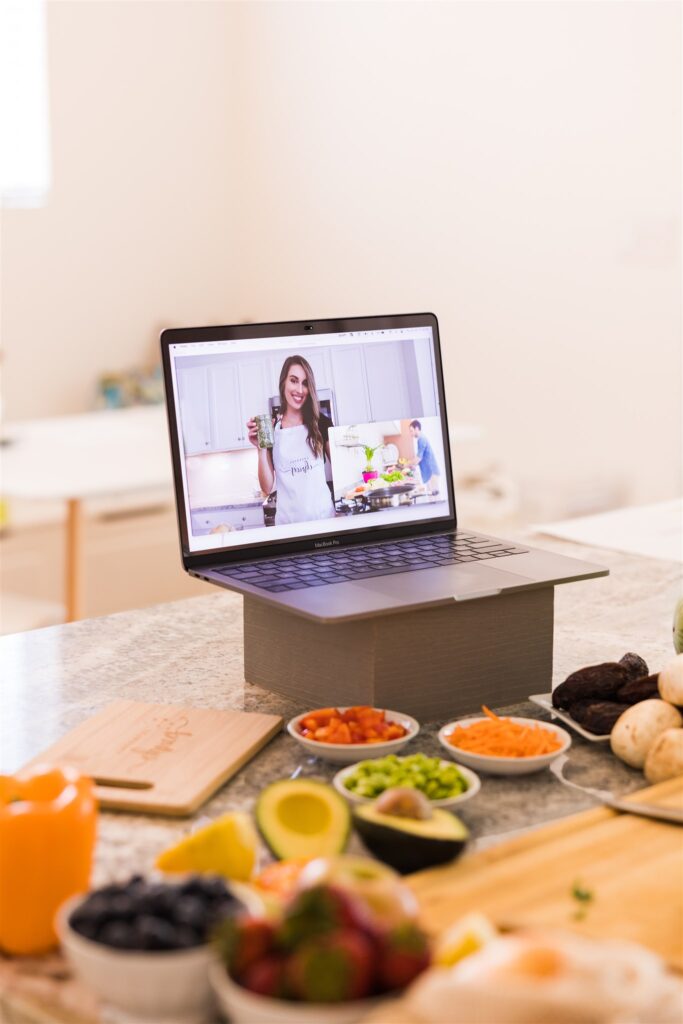
How technology can help
New apps and technologies can help you track your SMART goals and even recommend personalized guidance. A wearable wrist watch to track workouts or encourage meditation is a great tool to increase physical activity. Various free apps can help in initial meal planning ideas, stress relief, exercising, and goal tracking too. You may also find goal inspiration on places like Tiktok or Instagram.
Key takeaways
As we step into a new year, it's a chance to embrace change and kickstart fresh endeavors. SMART goals serve as a great tool to bring your vision boards. Keep in mind, achieving goals is a journey that requires time and patience, and it's perfectly fine to modify them along the way.
Need help from an expert? Our "Coaching + Cooking" program connects you with Mackenzie (a registered dietitian) who's ready to help with your nutrition and cooking goals in 2024! We even do personalized meal plans!

Coaching + Cooking Program
If you need more hands-on help with creating your SMART goals, check out this unique "Coaching + Cooking" program. In this program, you'll meet virtually with a dietitian and break down your nutrition and cooking goals into doable weekly goals. You'll also learn how to whip up easy and nutritious meals in the comfort of your own kitchen. Plus, having a registered dietitian on your side can help you stay accountable, achieve your goals, and reap the many benefits that come with living a healthy lifestyle.
save this SMART nutrition goals guide on Pinterest:


About the guest contributor: Ravin Garrett is a Nutrition MS student at Abilene Christian University, with a background in dietetics from Texas Southern University, planning to become a dietitian soon. With experience as a formula room tech and health coach, she applies SMART goals to assist a diverse range of clients, from those with diabetes to cancer. Her interests include media dietetics, sustainable food systems, and health coaching.

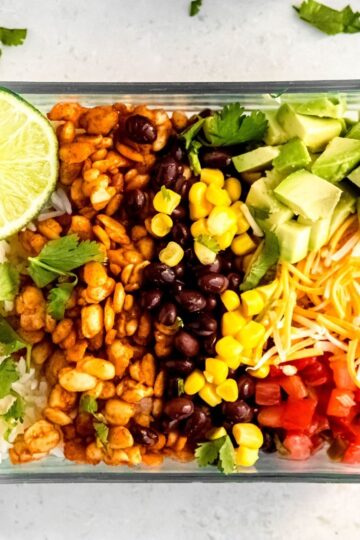
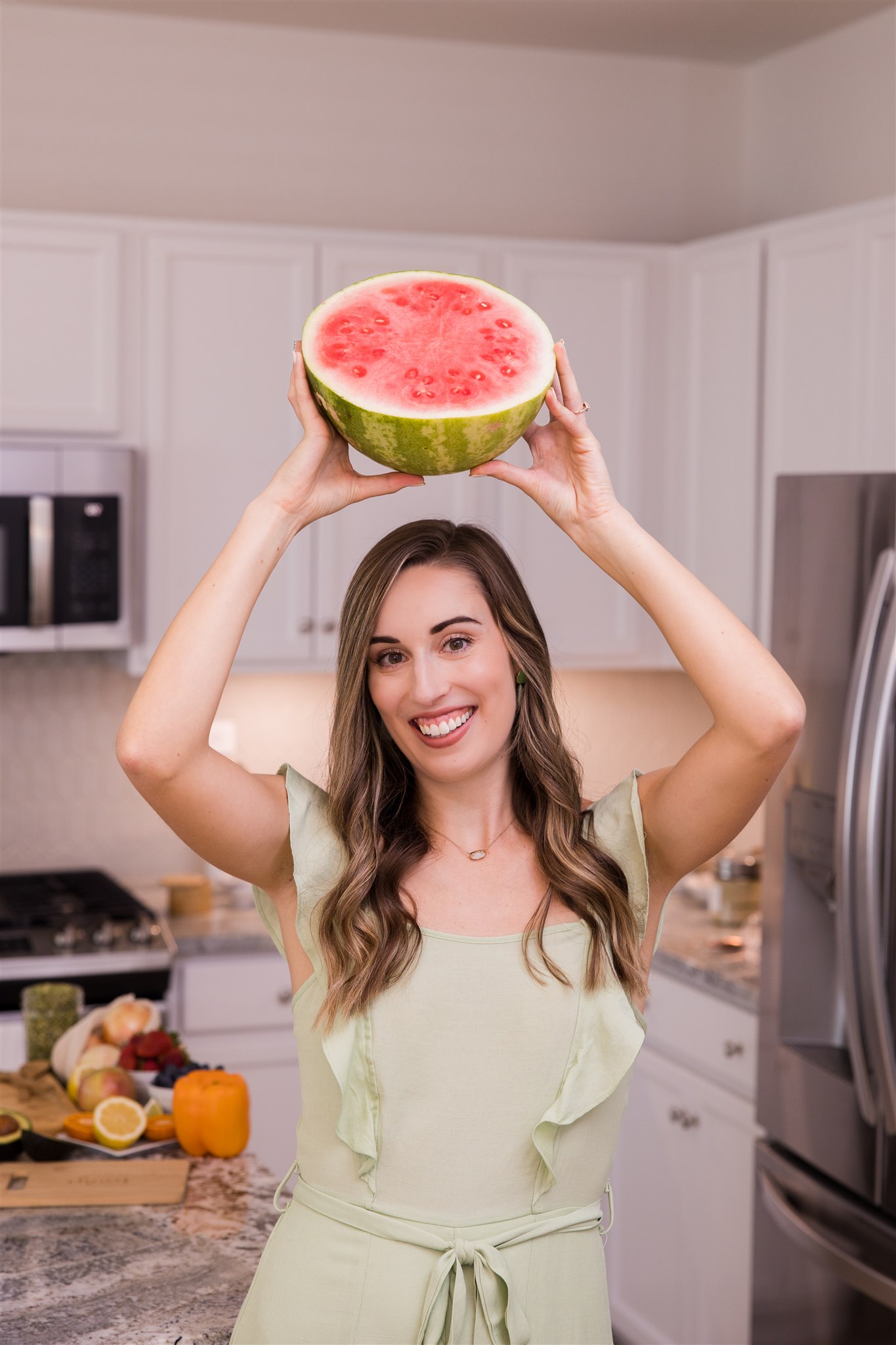


Leave a Reply